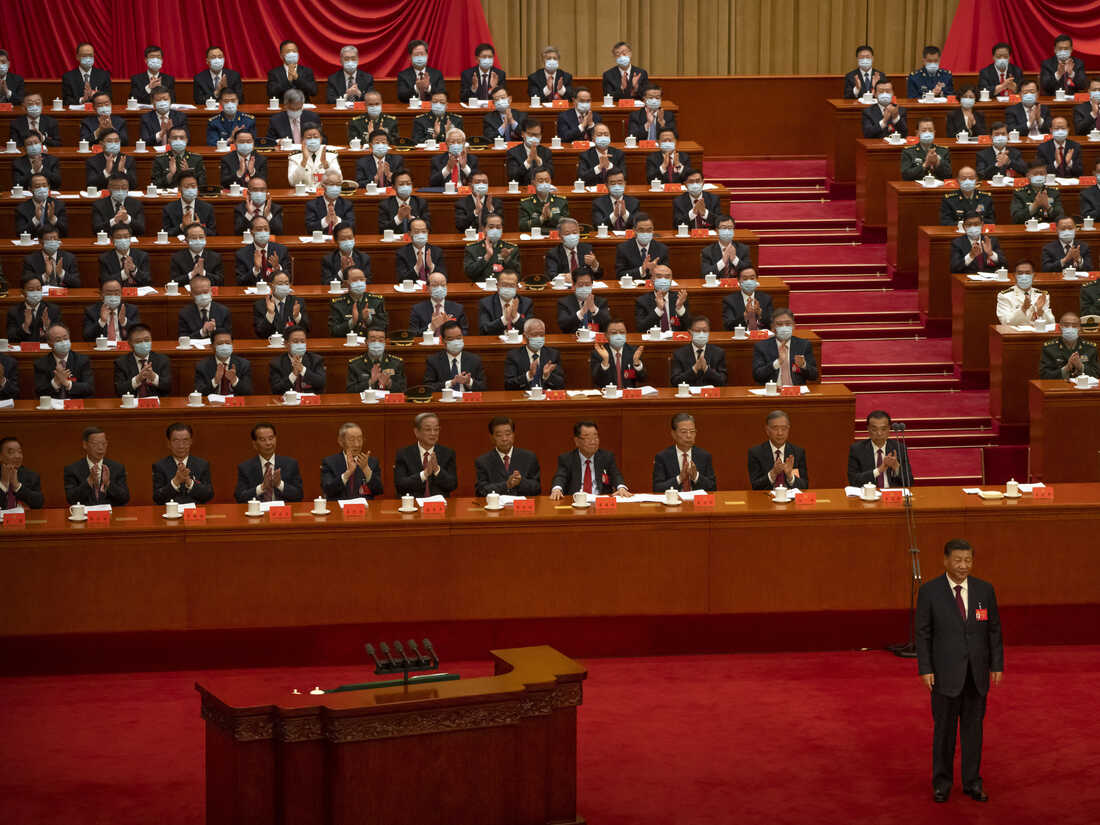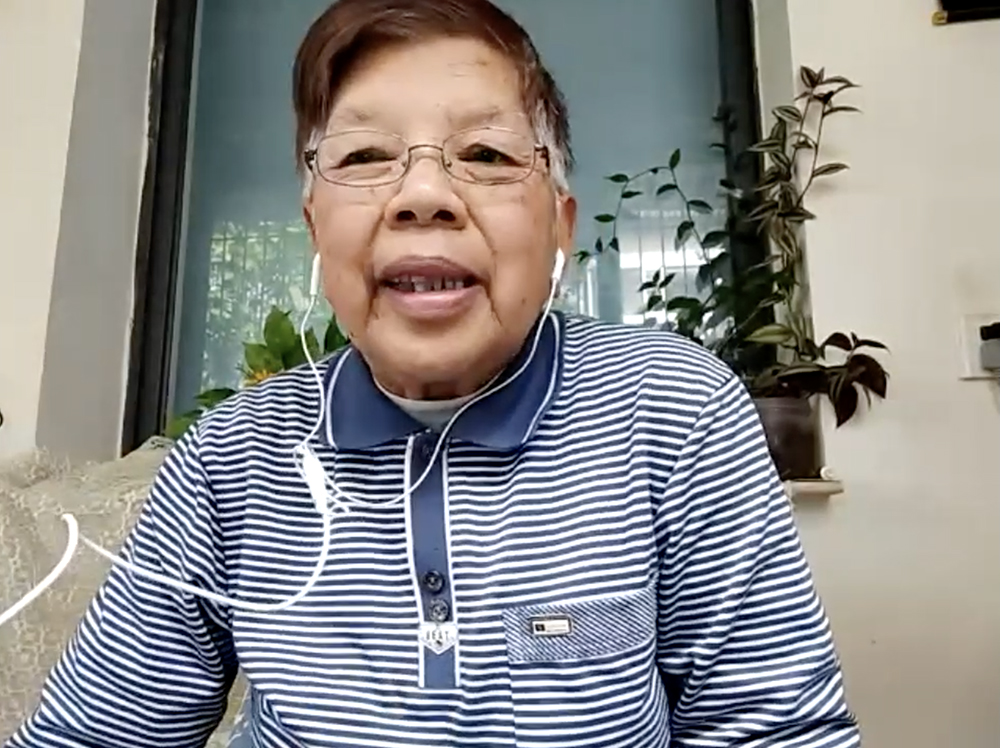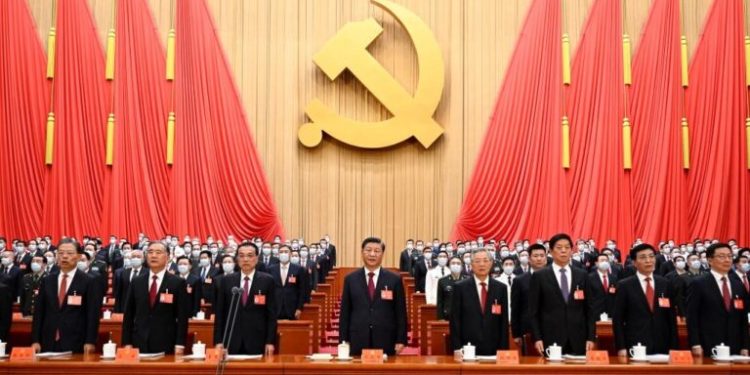Ethnic armed organizations (EAOs) based in northern Myanmar, which are long under the influence of neighboring China, are paying close attention to the Chinese Communist Party’s (CCP) congress as changes in Beijing’s leadership and policies can impact them.
President Xi Jinping is due to be confirmed as president and CCP general secretary for a third term and head of the powerful Central Military Commission.

China is a major investor in Myanmar and has important projects as part of the Belt and Road Initiative that will give it access to the Indian Ocean.
Xi visited Myanmar in 2020 and signed 33 memorandums of understanding, agreements, exchange letters and protocols with the then National League for Democracy government.
During the visit Xi acknowledged that Myanmar was an important partner.
Following the coup last year, Beijing said it will support Myanmar’s regime “no matter how the situation changes”. China and Russia are protecting the regime at the United Nations Security Council.
Chinese Foreign Minister Wang Yi said in April that Beijing “has always placed Myanmar in an important position in its neighborly diplomacy” and wants to “deepen exchanges and cooperation”.
Political analyst on China Dr. Hla Kyaw Zaw recently talked to The Irrawaddy about how the congress could impact Myanmar.

Will there be a change in China’s policy regarding Myanmar?
I don’t think there will be significant changes. China is looking at the whole Asian continent for its economic recovery. Xi Jinping has recently visited central Asian countries.
And China is in the ASEAN Regional Comprehensive Economic Partnership together with the 10 ASEAN countries. It plans to turn the entire Asia continent into its trade routes.
Myanmar is in the network and there won’t be significant policy changes.
As to the peace process in Myanmar, China is facilitating it as best it can. In the aftermath of the coup, China sent an envoy and called for a meeting with Daw Aung San Suu Kyi.
China is pushing for dialogue to build peace. It appears that China also supports the peace talks between the regime and EAOs based in northern Myanmar.
China tends to keep a low profile in what it does.
It might have been taking steps that we don’t see.
The Chinese authorities have reportedly told EAOs in northern Myanmar to make sure there is no gunfire along the border during the congress. Is it true and why did China demand this?
It is nothing new. Since the Kokang incidents in 2015-17 [clashes between Myanmar’s military and the Myanmar National Democratic Alliance Army], when shells landed in its territory, China has warned that it would respond if stray bullets and artillery landed in China’s territory.
It has repeatedly warned both the military and EAOs against fighting near the border.
The national security strategy rolled out by US President Joe Biden on October 12 seeks to contain China’s rise and calls it the largest threat to the global order.
Will the CCP respond at its congress?
China will only view it as a seasonal US statement and Biden setting off fireworks to attract voters for the mid-term elections in November. Republicans and Democrats may have different views on other things but they both take aim at China.
Despite the war in Ukraine, the US plan says China is the main threat.
It is seasonal. They are just playing the China card to win votes. This is how Beijing views it.
Will there be more friction between Washington and Beijing and how could that affect Myanmar?
There has been constant friction between China and the US. Economically, the US cannot shun China. Their economies are intertwined and there are many US companies in China.
Chinese analysts think relations between US and China will somewhat improve after the mid-term elections.
The US is playing the Taiwan card. But China apparently is not concerned much.
China believes it can threaten Taiwan a lot with its air force and navy. As long as Taiwan does not declare independence, China will not attack and it will keep the status quo.
Will China change its policy on Taiwan? Will it use force?
The general policy of China regarding Taiwan is the peaceful reunification of the Chinese people. China said it will consider various means, including the use of force, for reunification.
Some pro-independence groups are taking action with the help of certain countries.
China is unlikely to do anything unless Taiwan declares independence. But China has made preparations to take control of Taiwan by force if it declares independence.
How can revolutionary forces in Myanmar succeed without being stuck between China and the US?
It is a good opportunity for our revolution. But don’t oppose China by placing all the reliance on the US. Don’t expect anything from China and don’t curse the US with the hope of receiving help from China.
We have to take whatever we can get from the US. The US politically supports us.
And Myanmar’s ambassador [to United Nations] can speak freely from the US and we have to make use of it.
On the other hand, China has close ties with EAOs in Myanmar, including the United Wa State Army, Mongla (National Democratic Alliance Army), Kokang (Myanmar National Democratic Alliance Army) and the Arakan Army.
We need to attract those forces into our revolution. It is important to attract all the ethnic armed groups into the revolution. And we should avoid being fiercely critical of China. We should be as flexible as we can be in dealing with China and persuade it.
We should take the cue from Indonesia regarding our diplomacy. Indonesia attended the Nato summit organized by the US and after it went to China and invited it to attend the G20 summit [in Bali next month]. And it also told China what it discussed at the Nato summit.
We must learn how to act between big powers. It is not good for us to take sides with one country and make another an enemy.

















